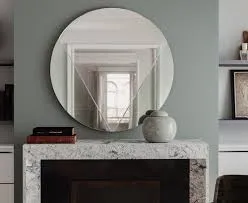

Understanding 4mm Float Glass Versatility and Applications
Float glass, also known as flat glass, is a widely used product in various industries due to its exceptional clarity, smooth surface, and versatility. Among the various thicknesses available in the market, 4mm float glass has gained popularity for both residential and commercial applications. This article explores the characteristics, advantages, and common uses of 4mm float glass.
What is Float Glass?
Float glass is manufactured using a process where molten glass is floated on top of molten tin. This method yields a smooth, even surface free of distortions. The glass is then cooled and cut into sheets of desired dimensions. The thickness of 4mm makes it a lightweight yet durable option that is easy to handle and install.
Characteristics of 4mm Float Glass
One of the main characteristics of 4mm float glass is its transparency. With a light transmittance of up to 90%, it allows ample natural light to pass through while maintaining excellent visibility. This feature is especially beneficial in environments where natural light is desired, such as in homes and offices. Furthermore, 4mm float glass has decent strength, making it suitable for various structural applications while remaining manageable in terms of weight.
Another important aspect is its customization options. 4mm float glass can be easily cut, shaped, and coated to meet specific requirements, allowing for a range of finishes, colors, and properties such as UV resistance or thermal insulation. This adaptability makes it suitable for multiple applications, including windows, doors, and glass facades.
Advantages of 4mm Float Glass

The advantages of using 4mm float glass are numerous. First and foremost, it is cost-effective. Being relatively cheaper than thicker glass options, it remains an attractive choice for homeowners and builders looking to maintain budget constraints without sacrificing quality. Additionally, its lightweight nature allows for easier installation and transport, reducing labor costs associated with handling heavier materials.
Moreover, float glass is non-porous and easy to clean. It does not absorb moisture, which minimizes the risk of mold and mildew. Regular maintenance usually requires only a simple wipe down with glass cleaner, making it a practical choice for various environments.
Applications of 4mm Float Glass
The versatility of 4mm float glass leads to its application in many areas. In residential settings, it is commonly used for windows, sliding doors, and shower enclosures. Commercially, it is utilized in storefronts, office partitions, and display cabinets due to its aesthetic appeal and functional benefits.
In addition to structural applications, 4mm float glass can also be used creatively in interior design. It can be incorporated into furniture, mirrors, and artwork frames, adding elegance and sophistication to any space.
Conclusion
In summary, 4mm float glass is a remarkable product that combines clarity, strength, and versatility. Its various applications and benefits make it a preferred choice for both residential and commercial projects. Whether for practical structural needs or innovative design solutions, 4mm float glass proves to be an essential material in modern architecture and interior design.